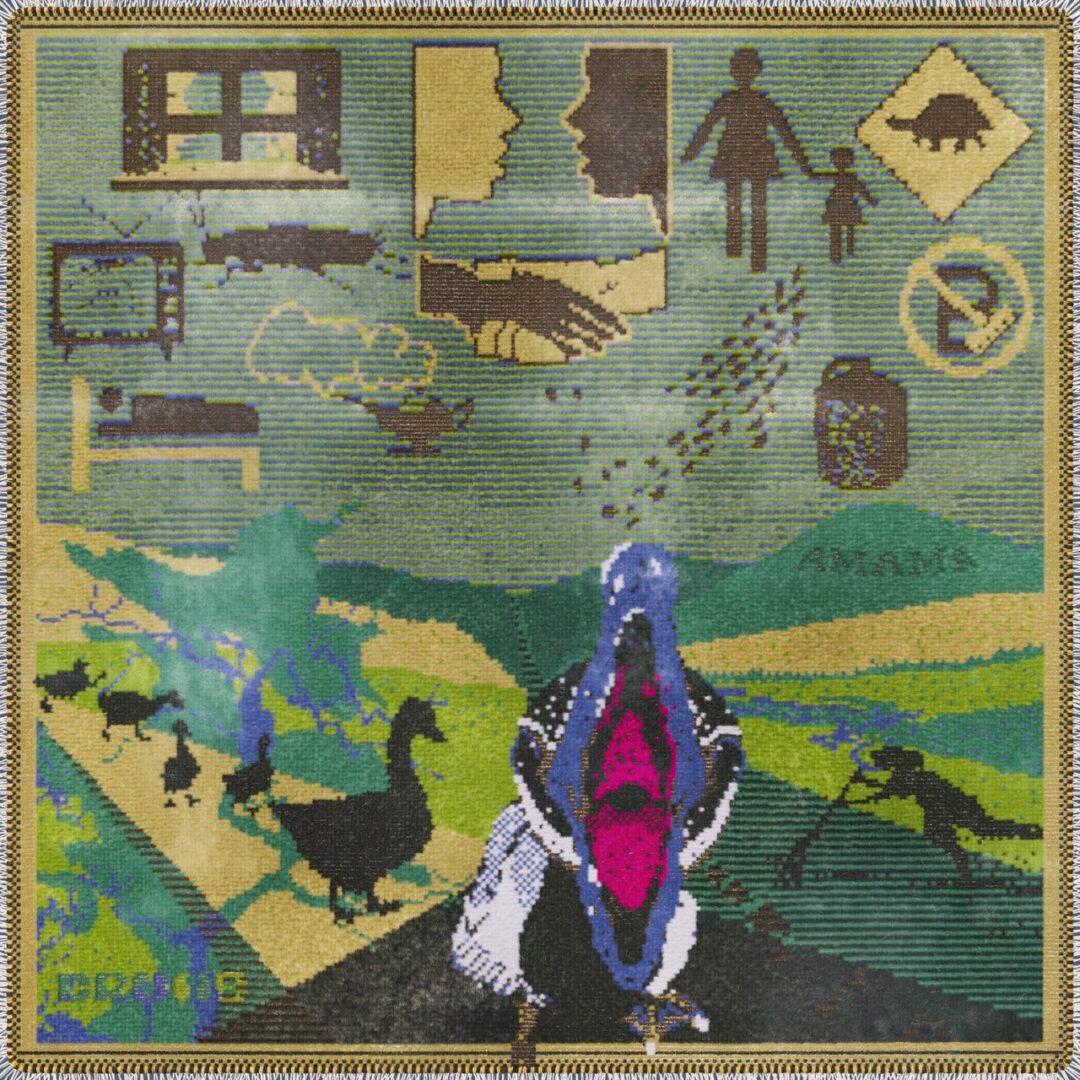Midway through Crumb’s new album, there’s a transitory, 49-second track called “Nightly News.” It’s groggy-sounding, a hazy sampler of cable-news synths and this-just-in swells; you get the sense that you’ve just woken up on the couch, and the TV is taunting you with whatever happened this time. Millions of cockroaches accidentally released from nearby research facility? Serial slasher last seen purchasing potato chips at local mini-mart? Nothing, it turns out: The song ends before revealing what the news actually is. It feels particularly apt for the New York band, who’ve spent the past near-decade churning out hypnotic epics with a sinister edge. In 2019, frontwoman Lila Ramani told Pitchfork that she wouldn’t “chill” to her group’s output. Dreamy as it is, their music is a wake-up call.
Crumb aren’t the types to get eight hours of sleep. Their first two albums, 2019’s Jinx and 2021’s Ice Melt, seemed to revel in the space between 2 a.m. and daylight—not only because of their shared sound, a slightly unnerving take on psychedelia, but also the ideas that informed that sound, the sorts of things you have to dream up. If you asked them about Ice Melt’s underwater-y vocal mixes, they wouldn’t tell you about Ableton effects or post-session knob adjustments; they’d tell you how they put condoms on microphones and dunked them in buckets of water. Ramani sang of transient thoughts, fleeting curiosities about strawberry seeds (“BNR”) or dates with dark spirits (“Jinx”). AMAMA, the band’s third album, gets more playful and candid than ever, without sacrificing their signature red-eyed experimentation. It’s a sleeker, riskier, and more rewarding iteration of Crumb’s approach: proof that as their footprint has expanded, their palette has, too.
Crumb take a microscope to foggy memories, gathering the ephemera of years spent staring through windows. They have roots in the New York scene—Ramani is an alum of Brooklyn ensemble Standing on the Corner; bassist Jesse Brotter appears on early tracks by MIKE—but their inventive jazz-psych invokes a wider set of peers, including Toronto’s BADBADNOTGOOD and Melbourne’s Hiatus Kaiyote. On “The Bug,” a hypnotic paean to caught flies and caught feelings, Ramani’s poetry is undergirded by a winding rhythm section that crawls like an insect. “Side by Side,” like the best Crumb songs, melds romance with vague mourning; when Ramani sings of “trying to run away” and the descending chord progression gives way to a feverish instrumental break, you get the sense that you’re running, too, but toward something—a seismic, supernatural encounter. Crumb’s music supplies a cinematic score for Ramani’s off-kilter scripts, slow-burn psychological thrillers that make you look over your shoulder, then at the world around you.

